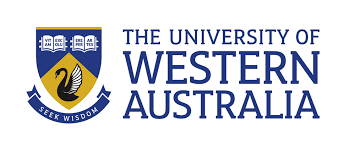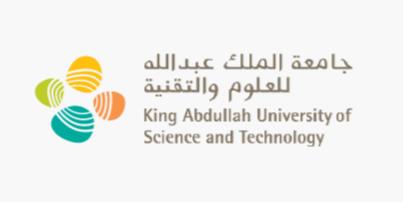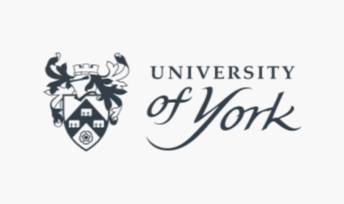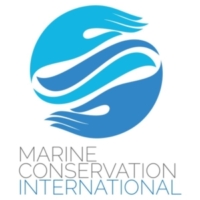
University of Western Australia
Since 1911, The University of Western Australia (UWA) has been a pioneer in marine and ocean sciences, leading groundbreaking research and innovative teaching. Located on the Swan River and on the land of the Whadjuk Noongar, the Crawley campus is a hub for expertise in marine engineering, oceanography, environmental science, and sustainable resource management.
UWA is Australia’s only Top 100 university in Western Australia with strong industry partnerships and practical training. UWA is globally recognized for excellence in marine research, UWA’s expertise covers ocean engineering, marine biodiversity, conservation, and climate impact. Their research addresses critical challenges facing the world’s oceans and coastal environments, fostering collaborations with industry, government, and communities.
Committed to societal and environmental impact, UWA leverages its marine science expertise to promote sustainable ocean use and ecological resilience, driving positive change locally and globally.

King Abdullah University of Science and Technology (KAUST)
King Abdullah University of Science and Technology (KAUST) is a graduate research university located in Thuwal, Saudi Arabia, on the coast of the Red Sea. Established in 2009, KAUST focuses on science and technology, promoting interdisciplinary research in fields such as energy, environmental science, and biotechnology. The university features state-of-the-art facilities and aims to foster innovation and collaboration between academia and industry. Its coastal location enhances its research opportunities, particularly in marine and environmental studies, making it a hub for global scientific collaboration.
The Red Sea Research Center (RSRC) at King Abdullah University of Science and Technology (KAUST) is dedicated to advancing knowledge about the unique marine ecosystems of the Red Sea. Established to address environmental challenges and promote sustainable practices, RSRC conducts interdisciplinary research on marine life, oceanography, and coastal management. Its location along the Red Sea enables direct access to diverse habitats, facilitating studies on coral reefs, biodiversity, and climate change impacts. The center collaborates with researchers globally to foster solutions for conservation and sustainable development in marine environments.

Nova Southeastern University (NSU Florida)
Nova Southeastern University is a private Research 1 (R1) university located in Fort Lauderdale, Florida. Established in 1964, NSU Florida offers a wide range of undergraduate, graduate, and professional programs across various fields. The university is known for its focus on experiential learning and research, particularly in marine biology. NSU Florida emphasizes community engagement and has numerous partnerships that enhance educational opportunities. Its diverse academic offerings and commitment to innovation make it a prominent institution in higher education.
The Oceanographic Research Center at NSU Florida is dedicated to advancing marine and environmental research. It specializes in areas such as marine biology, ecology, and oceanography. The Center conducts extensive studies on global coastal pelagic and deep ocean ecosystems and actively engages in university-level educational programs and community outreach to promote marine conservation and sustainable blue economy practices.
Within the Center, the Conservation Genomics and Ecology-Lab plays a crucial role in advancing understanding of marine organisms’ genetic diversity and adaptation. The lab conducts interdisciplinary research on species genetics, population dynamics, and evolutionary process, to aid the conservation and sustainable management of marine resources.
The Lab also conducts global scale shark tagging studies on species of high conservation concern. A major initiative is on silky sharks, to gather data on their migration patterns, behavior, and global population dynamics. This research aims to better understand the ecological roles of silky sharks and inform conservation strategies.
By utilizing advanced genomics and tracking technologies, the Conservation Genomics and Ecology Lab contributes valuable insights into the health of marine ecosystems and the challenges faced by shark populations, promoting sustainable management and protection efforts. The Lab also actively conducts outreach and education to foster marine conservation awareness in the community.

University of York
The University of York, located in York, UK, Established in 1963, is a renowned research institution and member of the prestigious Russell Group. It is recognized for its strong emphasis on interdisciplinary studies, particularly in the fields of environmental science and ecology. The University’s Department of Environment and Geography includes several groups working on marine ecology and conservation. The Marine & Coastal Environments, Ecosystems & People Network covers a wide range of research on marine ecosystems, focusing on areas such as climate change impacts, marine biodiversity, and conservation strategies. Specifically, the Network leads ocean modelling work to study marine heatwaves, biogeochemical extremes (e.g. pH, deoxygenation), which are highly relevant for coral reef systems as well as the interactions between tidal dynamics and coral reef ecology on the Great Barrier Reef (e.g. tracking larval spawning events, reef connectivity). These issues are of extreme importance in the Red Sea.
In addition, the University’s Leverhulme Centre for Anthropocene Biodiversity runs several highly relevant research programmes, including how the relationship between humanity and the natural world is changing, and how we might develop and maintain a more sustainable planet.
The University also leverages advanced genetics methodologies to study marine species, contributing to global efforts in marine conservation and sustainability.
The University has a strong track record of hosting and supporting well-known marine scientists who have conducted significant studies in diverse marine ecosystems, including the Red Sea. Their research in this region has examined coral reef health, biodiversity, and the impacts of climate change, particularly those associated with human impacts on marine habitats and species.

Marine Conservation International
Marine Conservation International (MCI) is a dedicated organization focused on protecting marine ecosystems and promoting sustainable ocean management. MCI conducts critical research and conservation initiatives aimed at safeguarding marine biodiversity. One of their key projects includes studies on shark populations internationally to assess their global status and ecological importance. The organization employs innovative techniques, such as BRUV’s tagging and tracking, to gather data that informs conservation strategies and policy development. Through collaboration with scientists, communities, and policymakers, MCI strives to raise awareness and drive effective marine conservation efforts worldwide.
Marine Conservation International has extensive expertise especially in tropical seas, where their research focuses on the ecology and conservation of coral reefs. Dr. Rupert Ormond, Director of MCI, has conducted significant studies in the Red Sea and Indian Ocean, where he examines coral health, responses to climate change, and biodiversity patterns. His work emphasizes the importance of reef ecosystems and the urgent need for conservation strategies to protect them. Through collaboration with global research teams, MCI looks to advance understanding and promote effective marine conservation efforts for coral reefs worldwide.

Danah Marine Research
Danah Marine Research is a non-profit organization advancing science-led conservation in the Red Sea. Our mission is to combine rigorous marine science, innovation, cinematography and media to promote the preservation of biodiversity. Through the promotion of science led sustainable eco-tourism we hope to preserve and protect marine ecosystems and support local communities for future generations.
Our mission is to align innovative marine research and media outreach to support sustainable eco-tourism development safeguarding biodiversity and promoting economic opportunity for future generations. With operations spanning coral reef restoration, megafauna tracking, and eco-tourism planning, Danah Marine Research is a catalyst for positive environmental impact.
The institutions listed above represent the professional affiliations of members of the CURA Senior Advisory Team. Each advisor participates in a personal capacity, and their involvement does not imply institutional partnership or endorsement.
“A world where marine ecosystems are preserved and thrive, guided by informed research and sustainable practices.”
ABDULMALIK AL SHEIKH, Founder of Danah Marine Research
Stay informed about our research initiatives.
Sign up to our mailing list for updates about our work.
